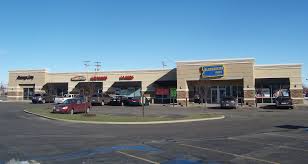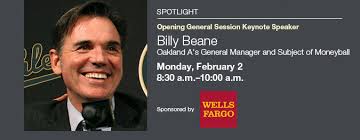 Seventy-five percent of the time when a developer calls a commercial mortgage broker to help him place a commercial construction loan - that deal is NOT do-able. Why? Because the developer doesn't have enough equity in the deal. He doesn't have enough skin in the game.
Seventy-five percent of the time when a developer calls a commercial mortgage broker to help him place a commercial construction loan - that deal is NOT do-able. Why? Because the developer doesn't have enough equity in the deal. He doesn't have enough skin in the game.
"Gee, George, how can you make such a blanket statement like this? How could you possibly know that the developer doesn't have enough equity? Are you the Great Oracle of the Indiana Cornfields?"
Answer: Banks love-love-love to make commercial construction loans, assuming the world needs what the developer is trying to build - like more office space in San Francisco. Banks love to make construction loans because they are short term loans and because they very profitable. Why are construction loans so profitable? Because the bank immediately earns one to two points up-front on the entire loan amount, even though the developer's first draw might only be for a few thousand dollars.
Therefore any developer with half a brain calls a local bank long before he calls a mortgage broker. And if the banks wants to make construction loans, yet it turns the deal down anyway, there has to be a reason. Ninety percent of the time that reason will be because the developer doesn't have enough of his own - or his partners' - money in the deal. Rather than try to raise more equity, he tries a mortgage broker.

Therefore, if you are a mortgage broker, the first thing you have to do, before you waste a lot of time, is to determine if the developer has enough equity in the deal. But what counts towards the developer's equity? It is the sum of the following:
- The developer's cash down payment on the purchase of the land.
- It does NOT include the principal and interest payments on the land loan used to buy the land. Payments on a land loan don't add value to the project. In theory, a developer is supposed to pay cash for the land.
- But definitely include any appreciation in the value of the land since the buyer purchased it, either because of time (maybe the developer wisely bought the property in 2009 at the bottom of the market) or because of the happening of some external event, such as the completion of a freeway off-ramp on the subject strip or the opening of a nearby Wal-Mart.
- Any increase in land value due to a zoning change or use change.
- Any increase in value of the land due to assemblage. Sometimes an assembled parcel is worth far more than the sum of the purchase prices of the various parcels. Imagine a developer who is able to buy six ugly, old rental houses along a busy strip and combine them into a site large enough for a modern new strip center (called a mini-mall in Southern California).
- Any monies already expended for architect's fees.
- Any monies already expended for engineering fees.
- Any monies already expended for legal fees, especially when used to get the zoning or use changed.
So how much equity is enough? Generally a developer has to cover 20% of the total cost of a project.

Don't forget, when you are computing the Total Project Cost, to include such Soft Costs as the Interest Reserve, any loan points, appraisal fees, toxic report fees. structural engineering reports, plan check fees, and utility hook-up fees. Any of these fees that are prepaid count towards the developer's equity in the project.
Remember, the developer, or his equity partners, must contribute at least 20% of the Total Project Cost. If the property is a business property, such as a hotel, restaurant, or marina, the developer may have to contribute 30% to 40% of the Total Project Cost.
If you learned something today, would you kindly give me a social media doggie treat, like a Facebook Share, a Linked-In Share, a Twitter Re-Tweet, or a Google-Plus atta-boy? It's how I can judge whether or not our readers are digging these articles. Thanks so much!
Got some loan agents working for you or some buddies who are also in commercial brokerage or commercial mortgage brokerage? It would be terrific if you would please forward this training article to them. And if someone was indeed kind enough to forward this article to you, you can sign up to receive these free training articles in commercial real estate finance by going to our blog and typing in your email address below my rump-ugly picture. :-)
When I teach commercial real estate finance, I try hard to use simple terms (baby language), lots of repetition, and tons of examples. Although I ended up graduating from law school with honors and passing the California Bar on my first attempt. I also remember driving my law school instructors absolutely crazy with questions. "I'm sorry, Judge, but I don't get it." So my training courses are intentionally aimed at folks of average intelligence (like me). I truly believe the best thing you can do for yourself in this business is to take my classic 9-hour training course. Countless successful brokers have sought me out at trade shows to shake my hand and thank me for this course. Heck, I expected to be dead by now (heart problems), so I created this program with great care to train my two wonderful Eagle Scout sons after my death. God bless modern medicine! Ha-ha!
If you put two plastic bottles into a recycling container you get to take the lovely Jennifer Aniston out to dinner. (If you haven't seen the Jennifer Aniston movie, We're the Millers, you are missing a true treat.) The recycling bottles deal is the only deal on Earth better than the following.
C-Loans is now placing business loans, rather than simply commercial real estate loans.
How would you like to be able to turn on a flow of commercial loan applications like turning on a faucet? Hey guys, do you think that I really get to live near my daughter's $45,000 per year high school because I am so handsome and charming? Helloooo? Look at the picture. It's because I am a master marketer, and everything I do is repeatable. My son, George IV, has taken my marketing course, and he is emerging as even more effective marketer than me.
Do you sometimes look at my marketing courses and say, "Gee, George, I don't doubt that you can teach, but I don't have any dough." I'll give you the training course of your choice if you convince a bank to join C-Loans. This is no big deal, guys. Just send them the link to this sales page. Duh. Bankers are getting pressure today from their bosses to make commercial loans and SBA loans.
I don't get you guys. You are so focussed on saving the borrower 1/2% on the interest rate that you forget that the borrower's business actually needs money. If they had money right now, they could triple it in 18 months. And you're risking everything to try to save them 0.50%? Really? Are you retarded? Blackburne & Sons will issue your client a Loan Approval Letter for free! We're thrilled to do this because we know that 60% of the time your best bank will leave your borrower standing at the altar looking stupid. Your borrower needs money!









 A handful of well-trained commercial mortgage brokers are about to make a fortune originating commercial construction loans over the next few years. There are three reasons why this is true.
A handful of well-trained commercial mortgage brokers are about to make a fortune originating commercial construction loans over the next few years. There are three reasons why this is true.







 Question: What is
Question: What is 


 Even though I have been in the commercial mortgage business for 35 years now, I still learn new commercial real estate finance (CREF) terms every month. Here are some CREF terms that I've learned recently:
Even though I have been in the commercial mortgage business for 35 years now, I still learn new commercial real estate finance (CREF) terms every month. Here are some CREF terms that I've learned recently:

 You've seen my commercial real estate finance training courses, and they intrigue you. That Commercial Mortgage Marketing course would really help right now, and my nine-hour course on How to Broker Commercial Loans would fill in a lot of holes in your knowledge of the business. Unfortunately, you just don't have the money right now.
You've seen my commercial real estate finance training courses, and they intrigue you. That Commercial Mortgage Marketing course would really help right now, and my nine-hour course on How to Broker Commercial Loans would fill in a lot of holes in your knowledge of the business. Unfortunately, you just don't have the money right now.

 Back in August of 2012, I wrote my most important blog article ever of the subject of commercial loans and commercial loan brokerage. If you read only one commercial real estate finance training article in your lifetime, make sure you read my 2012 blog article entitled,
Back in August of 2012, I wrote my most important blog article ever of the subject of commercial loans and commercial loan brokerage. If you read only one commercial real estate finance training article in your lifetime, make sure you read my 2012 blog article entitled, 

 Last week I wrote a training article entitled,
Last week I wrote a training article entitled, 


 I just returned from the Mortgage Bankers Association's 23rd Annual Commercial Real Estate Finance Conference, known as the
I just returned from the Mortgage Bankers Association's 23rd Annual Commercial Real Estate Finance Conference, known as the 

 Something extraordinary happened this month.
Something extraordinary happened this month.

